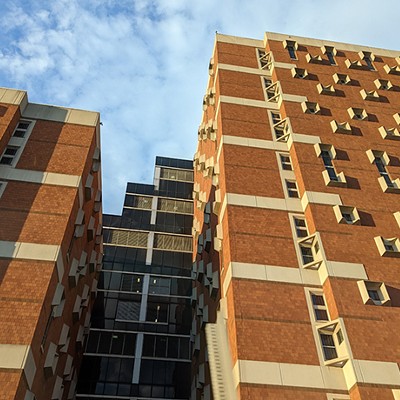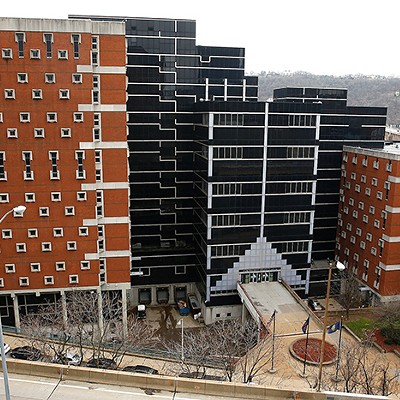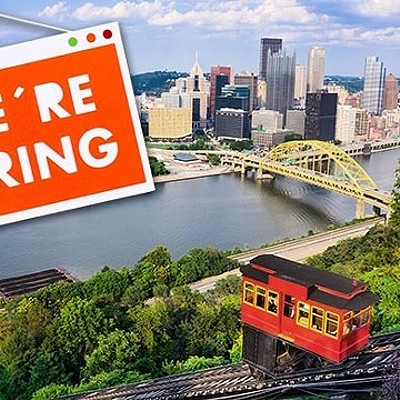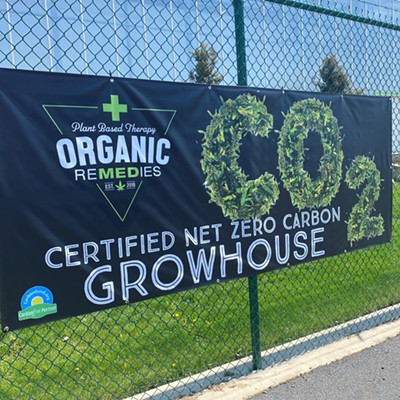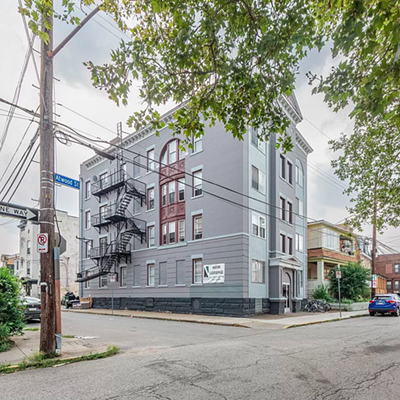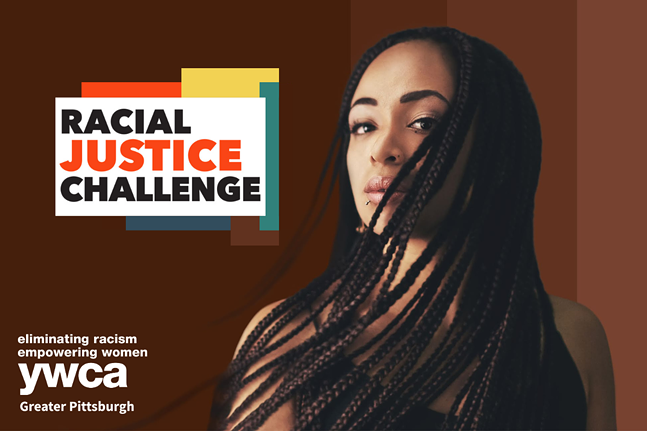
“The greatness of a community is most accurately measured by the compassionate actions of its members.”— Coretta Scott King
In a time when many of us struggle to understand how we can make a positive impact on the world around us, it can be helpful to narrow our focus. You may be surprised what happens when you commit to just one justice-oriented activity per day.
This is the central idea of YWCA Greater Pittsburgh’s annual Racial Justice Challenge, beginning next week on April 1. (Visit ywcapgh.org/racial-justice-challenge for complete details.) YWCA Greater Pittsburgh, a non-profit organization dedicated to eliminating racism and empowering women in the Greater Pittsburgh region, has been hosting the YWCA Racial Justice Challenge for four years.
The YWCA Racial Justice Challenge is a virtual learning tool designed to create dedicated time and space to build more effective social justice habits, particularly those dealing with race, power, privilege, and leadership issues. New content is released each weekday, and participants who log on to the Challenge app or visit the website are presented with daily activities like reading an article, listening to a podcast, or reflecting on personal experiences.
“Our goal with this event is to provide a resource that is accessible to those just beginning their racial justice journey while also providing curated content to interest those who have been doing this work for decades,” said Dr. Angela Reynolds, CEO of YWCA Greater Pittsburgh. “People of all backgrounds can learn something new.”
Sarah White, chief diversity officer at La Roche University, has been participating in the challenge since 2021 and shared, “If I were to research each of these issues on my own, time would not permit me to go beyond just a surface-level overview. But with all the info and so many additional resources available at the ready, I am able to dive in deeper. I hear from a variety of voices and perspectives outside of my immediate circles and grow in my own understanding of racial justice.”
White continued, “I chose to participate because the format of the Challenge makes it so convenient, and the information is always so current and relevant. Each week covers a different issue around racial justice that is impacting our society in real-time. I also appreciate that there are daily readings, podcasts, and/or videos that give more context and background for each topic and that the research is easily accessible, at just the click of a link.”
Weekly Themes
Each week of the one-month challenge has a different theme, with this year’s feeling particularly urgent. While the national organization chooses the topics, Pittsburgh staff members are connecting local issues to the topics. This year’s themes are:
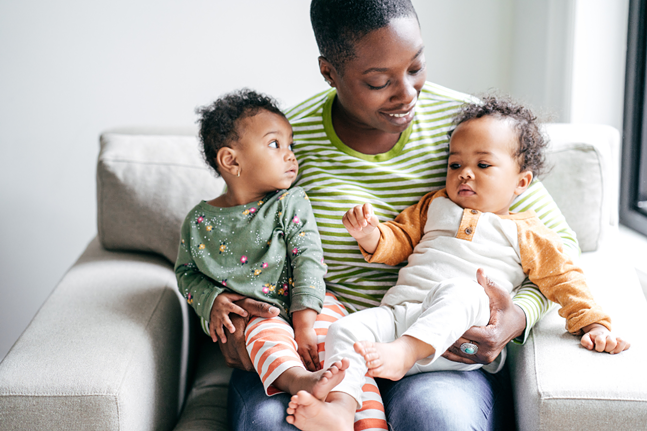
Week one - Bodily Autonomy is one of the most fundamental rights we have as human beings. However, across the country, this fundamental right is being challenged. This week, the YWCA will have difficult conversations about some of the many ways marginalized bodies are restricted, policed, and violated. The Bodily Autonomy theme will also touch on the current maternal mortality crisis facing Black women. This is a topic that is unfortunately especially relevant here in Pittsburgh, where the Black maternal mortality rate is higher than Black mortality rates in 97% of similar cities.
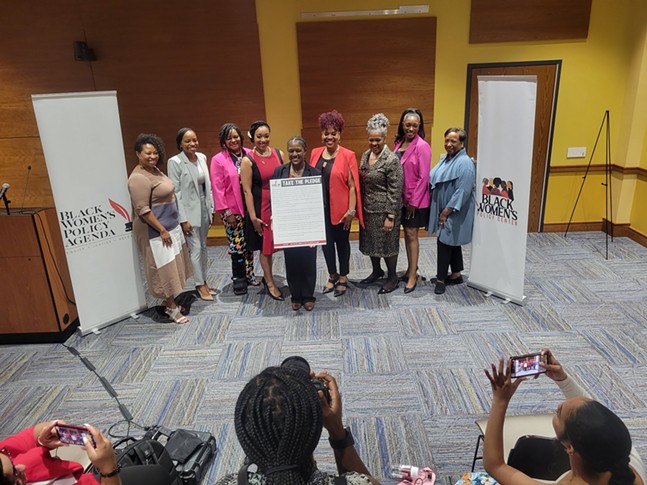
Week two - Women’s financial empowerment & caregiving are critical issues that must be addressed in order to achieve gender equity. Generations of women were denied control over their financial lives, and it wasn’t until 1974 that women in the United States were allowed to have credit cards in their own name. Today, more women are taking control of their finances and making important decisions about budgeting, saving, and investing. Despite all this progress, inequities persist, with bias and the racial, gender, and motherhood pay gaps continuing to hold women back from reaching their full economic potential.
A 2019 report from the City of Pittsburgh’s Gender Equity Commission revealed alarming statistics about the structural barriers facing Pittsburgh’s Black women, including low rates of participation in the labor force, high rates of occupational segregation, high poverty rates, and low average income. Through YWCA Greater Pittsburgh’s Level Up Pittsburgh Pay Equity Campaign, the organization advocates for women of color to be paid equitably in Pittsburgh and beyond to close these gaps.
Furthermore, this topic will include education about entrepreneurship in communities of color. Entrepreneurship is another meaningful way for women of color to create better financial outcomes for themselves and their families. For this reason, YWCA Greater Pittsburgh has recently supported several initiatives to help entrepreneurs build their businesses and, in the 2022-2023 fiscal year, partnered with Catapult Greater Pittsburgh to launch a Sustainability Mini-Grant Program, awarding $5,000 to 11 women and minority women-led small businesses serving Allegheny County. In addition, the organization partnered with the African American Chamber of Commerce of Western PA, the Asian American Chamber of Commerce of Pittsburgh, and the Pittsburgh Metropolitan Area Hispanic Chamber of Commerce to provide one-time $20,000 grants to support local MWBE business owners.
Week Three - Gun Violence: The United States has the highest number of civilian-owned firearms in the world, and headlines and research make clear, however, that gun violence is a major threat to their health and safety. This week, they will explore the history of gun ownership in America and how it has impacted the lives of marginalized people.
Week Four - Access to Transportation impacts every aspect of our lives, from our ability to get to work, access healthcare, and educate our children. With so much at stake, transportation equity is critical to eliminating racism and empowering women.
New for 2024
This year, YWCA Greater Pittsburgh is excited to host weekly gatherings throughout April, focusing on giving YWCA Racial Justice Challenge participants space to connect in person and discuss the themes. Gatherings will occur each Friday in April at YWCA Greater Pittsburgh’s office located at 2313 East Carson Street in Pittsburgh’s South Side from 3:00 to 4:30 p.m. Participation is free, and refreshments will be served.
“Our discussion groups are a great way for community members to connect with each other over shared values,” said Sebastian Lacy, YWCA Greater Pittsburgh’s vice president of equity and culture. “Whether you plan to complete every Racial Justice Challenge activity or just want to learn more about YWCA Greater Pittsburgh’s programs, we encourage all who are interested to attend.”
How to Participate
Registration is open now, and anyone can participate. Visit ywcapgh.org/racial-justice-challenge to register. There’s even a beneficial app. According to White, “I love that there is a Racial Justice Challenge app that lets me access the themes and resources while I’m on the go.”
Workplaces and Community Groups Invited to Participate
Workplace, student organizations, and other groups are also encouraged to participate. Over the last few years, White has brought the Racial Justice Challenge to the LaRoche Community and shared, “Our participation in the Challenge as a campus community gave us some common language to use, a foundational understanding of key issues, and tools from which to further the conversation as a community and within our own circles outside of the University. Collectively we became more aware of intersectional identities within race and gender, and how our own positionality impacts our perception of other identities outside of our own.”
According to White, her reasons for involving the LaRoche Community include, “the Office of Diversity, Equity and Inclusion at La Roche University strives to create and sustain a welcoming and inclusive environment that embraces diversity and encourages dialog across differences to increase intercultural competence. After my own positive experiences with the Racial Justice Challenge, I thought it would be a great way to facilitate conversations around race, gender, and inclusivity for our campus community. I was also eager to bring in new voices and different perspectives other than my own, and the Challenge allowed me to do so in a way that is respectful of everyone’s time and resources. I also knew that this type of self-paced learning would be a welcomed alternative to a traditional seated workshop or training.”
White went one step further, working with the YWCA staff to partner with the YWCA of Greater Pittsburgh’s Center for Race and Gender Equity team to facilitate weekly ‘brown bag lunch’ discussions to reflect on that week’s topic and get a primer for the following week. White shared that “the YWCA staff were amazing to work with, and even followed up individually when an issue was particularly sensitive or challenging for a participant.”
When asked if LaRoche and White herself will be participating this year, she enthusiastically stated, “I will most definitely participate in the Challenge again this year, and I expect a good number of La Roche folks to join me. I’m looking forward to all four of this year’s topics, as they are each related to current events that I’m most concerned about. I honestly can’t decide which one I’m more eager to dig into!”
Groups interested in participating are encouraged to reach out to Sebastian Lacy.



